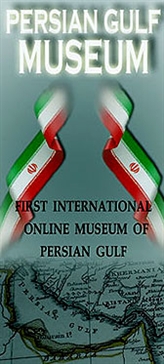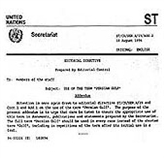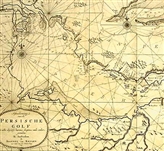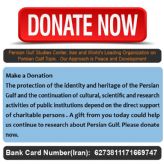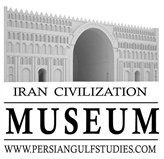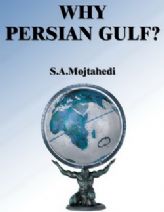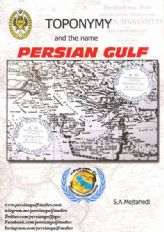PGSC interview with NHK
Date: 3/9/2014 11:15:02 AM
Rezaei interview with NHK
Japan Broadcasting Corporation
TC: 12:06:26:04 – 12:08:37:25
I am Massoud Rezaei, senior researcher and deputy president of The Persian Gulf Studies Center. The PGSC started work on March 2008 and has fortunately had notable progress till today. Our primary goal was the revival of the name of Persian Gulf, but in the continuation of our activities we decided to expand our activities to the geopolitical, geo-strategical and geo-economical fields of the Persian Gulf. Regarding the importance of the Persian Gulf and Hormuz Strait specifically, I have to tell you that the Persian Gulf currently holds 60% of the world’s energy resources and 85% of the exports from the Persian Gulf happen from the Hormuz Strait to Asian countries such as Japan, China, South Korea and India, 50% to Europe and 30% to South America also. Regarding the resources existing in this area I have to tell you that the country of Saudi Arabia with over 260 billion barrels and Iran with over 150 billion barrels of oil reserves are the top and second countries of the area in this regard. Also, based on the opinions presented by the peace institute of the US in one day in 2011 around 17 million barrels of oil passed through the Hormuz Strait area. With a simple calculation we see that monthly 500 million barrels and overall in the 2011 fiscal year over 6 billion barrels of oil have passed through the Hormuz Strait region. In addition 3.5 billion square feet of gas are transferred through the Hormuz Strait to the North American countries, Japan in Asia and other Asian and European Countries. Also, in the Persian Gulf we have abundant resources of Iron ore, red soil, lead and varieties of pearls and sulfur. This shows that the Persian Gulf and Hormuz Strait are very important not just for Iran and the region but the whole world.
TC: 12:08:41:04 – 12:08:56:22
Allow me to explain about the importance of the Hormuz Strait for Iran essentially. We have strategic islands lying in the Hormuz Strait area: Hormuz, Lark, Qeshm, Hengam, Tonb-e-Bozorg and Abu Moussa are Iran’s Geo-strategic islands for Iran.
TC: 12:09:03:00 – 12:10:42:27
I should first explain to you the importance of Hormuz Strait for Iran. The Hormuz Strait is of high geo-strategic importance for us Iranians and in that region we have strategic islands Hormuz, Lark, Qeshm, Hengam, Tonb-e-Bozorg and Abu Moussa are Iran’s Geo-strategic islands that have the support and backup role for Iran. These islands in fact form the first line of Iran’s defense front. The second defense line of Iran is its defense bases in the Bushehr port, the Bandar Abbas and Chabahar port. These in fact play the support role for the islands in the hormuz Strait area. In general these ports protect Bandar Abbas which is situated at the Southern entrance to the Iranian plateau. The Bandar Abbas – Kerman road is considered the entrance to the Iranian Plateau so if the smallest damage is inflicted on the islands surrounding the Hormuz Strait, the Hormuz Strait itself or consequently to Bandar Abbas, Iran will be open to attacks from any enemy.
About the presence of Iranian forces I can only tell you that the IRGC is completely responsible for the protection and security of the entire Persian Gulf borders of Iran. It has a base in the Hormuz Strait region for the control and supervision of entrance and exits from the Hormuz Strait. The Marine forces of the IRGC are busy with round the clock patrols of the area with a variety of facilities and weapons which they possess. In addition to these, non-regional countries such as the UK, France and the US have bases especially in the southern borders of the Persian Gulf.
TC: 12:11:13:00 – 12:12:11:00
The Persian Gulf is divided into 4 geopolitical regions overall. The Peninsula Region in the north east, the Iran area in the North, the Arabian region in the south and the Mesopotamian region in the North West. Among these, in the recent decades, 2 main fields have been in conflict and competition with each other; the northern area led by Iran and the southern area led by Saudi Arabia. Saudi Arabia wishes for the divergence and the influence and penetration of non regional and foreign forces to the Persian Gulf while Iran follows the strategy of the convergence of Persian Gulf countries and the non-interference of ultra regional forces in this area because none of these non regional countries will be able to meet the interest of the countries of the region. As I mentioned this conflict has developed for several decades now and in its best state it is competition and in its worst form it is a state of tension and confrontation between these two axes of power.
TC: 12:12:37:00 – 12:14:30:17
The Hormuz Strait is a waterway that connects the Persian Gulf to the Oman Sea and its width is about 40 km and its depth is about 90 meters and daily more than 20 to 30 oil tankers cross through this region. The American Energy Administration claims that the most important oil passage of the world is currently the Hormuz Strait and if any blockage or disruption is created in this waterway for a long term period it is natural that the world economy will fall. We can debate about whether Iran is able to close the Hormuz Strait or not. In this regard I won’t talk about the claims of the Iranian authorities. There are several institutes in the US including the Washington Institute and the American Spectator foundation. These have claimed that Iran is able to close the strait for a specific and maybe short amount of time. It cannot keep the Strait closed for a long time but it can close it for a while and after that it can cause disruptions in the procedure of activities in the Strait. Naturally, based on some regulations that have existed from the past; energy flows through areas that are secure or goes to areas that are secure. It’s true that Iran may not be able to close the strait for a long time period but with the disruption it can create in the process of activities there it can disrupt energy activities across the world and the world economy will naturally be harmed this way. This maneuver that was held in the previous days led by the US is naturally in line with Southern region’s geopolitical goals. Iran, in no way desires to witness in its neighboring waters, the presence of some non regional countries in this shape.
TC: 12:14:34:00 – 12:16:23:21
Regarding the recent threats by Israeli authorities to attack Iran, especially claims made by Mr. Netanyahu the PM in the recent two weeks, I have to tell you that the country of Israel is incapable of attacking Iran on its own. Iran is not the city of Gaza or South Lebanon, although even when Israel attacked these regions it didn’t succeed in achieving its political and military objectives. An Israeli attack on Iran requires a unanimous international coalition. In the present situation, considering the negative economic situation of the West and that the US government just went through two heavy wars and is on the brink of its presidential elections, I do not see such an international will existing by any means. The essential issue is that we know how Israel will attack Iran should it chose to do so. We have inspected all their dimensions, but the fact of the matter is that Israel and the West in general don’t know what reaction we may have precisely and it’s better that it stays this way. The claims made by Israeli authorities in recent weeks and in recent years is also mainly the result of their own internal issues and conflicts. The right wing politicians in Israel be it Lieberman, Netanyahu or Ehud Barak, have definitely put their own domestic conflicts with their own people and their own economy behind this issue and wish to post pone being responsive to their own society and to occupy the minds of their own people with Iran phobia. Naturally they have met some success in this field and the average Israeli citizen wakes up expecting either Israel to attack Iran or the vice versa.
TC: 12:16:36:15 – 12:17:38:22
Regarding an attack by Israel, if such an attack does take place under special circumstances, Iran’s response will not just be to close the Hormuz Strait or disrupt its activities. We have missiles that can target the heart of Israel. We have proxies around Israel such as Hamas or Hezbollah that are capable of supporting and providing backup for Iran. Although we will behave with political wisdom and we know that also there are maybe some wiser people in Israel that would not even think of committing such an attack. We saw in recent weeks that 400 elite Israeli citizens which included Israeli pilots requested that in the case of a probable attack on Iran they would be excused from flying their planes into Iran. Iranian reactions are diverse. I just mentioned one or two special cases, but there are many things that Iran can do.
TC: 12:18:06:22 – 12:18:32:23
Any country will definitely make a series of efforts for self defense and Iran is not an exception to this rule but based on our positive view we are hopeful the Middle East region would be rid of any kind of nuclear weapons and that includes the country of Israel putting its nuclear artillery aside and we do not witness any kind of military action in the Middle East region whether in the near or distant future.
TC: 12:18:50:00 – 12:20:21:05
Considering that, as I told you 60% of the world’s energy resides in the Persian Gulf and 40% of this energy passes through the Hormuz Strait routes, so whether we like it or not the Hormuz Strait is one the most important regions of the world. Any kind of transport through that area is definitely logged and controlled both by Iran and other regional and non-regional countries. Upon entrance, these ships definitely have to pass through Iranian TONB islands and when exiting the Hormuz strait they will pass above the Tonb islands. So you must be aware that these comings and goings are definitely controlled. If one of these movements is disrupted in any way, then the process of that energy unit and the stages it has to go through to be processed and reach its final product, well this issue will be naturally delayed for a certain period of time which will harm that activity. As a result the conditions that will appear will be extremely dire. As I mentioned, the Washington institute has stated that on the condition of the long term closing of the Hormuz Strait and not even permanent closing, the world economy will collapse.
TC: 12:20:33:20 – 12:20:56:27
The oil of the Persian Gulf will last for another 50 years at least, but Persian Gulf gas will be able to supply the world for another 300 years alone. So while these energy sources exist in this region and are supposed to pass through the Hormuz Strait, then naturally the Hormuz Strait will not lose its importance and significance.
TC: 12:21:00:02 – 12:22:09:00
Based on the border contract signed on July 20, 1974 between Iran and the Kingdom of Oman, Iran gained political ownership over a large portion of the Hormuz Strait, and based on international maritime laws, every country has ownership over 12 miles of waters outward from its coasts so Iran can legally control 12 miles of waters outside its coasts in the Hormuz Strait and this means that Iran can legally even close the Hormuz Strait. So if a ship or any other element moves toward the Persian Gulf from this area and Iran feels that this element can be a threat to Iran, it can legally block that element. Now how far and to what limits Iran can show such reactions and how long it can be permitted to close the Hormuz Strait, now this is an issue that is still a point of debate and no one in the world has provided a clear response for this issue in general.
TC: 12:22:11:00 – 12:22:51:25
Look, the case that occurred a month ago and such cases are just very special issues. If such an incident occurs in any case in this region of Hormuz Strait in any form be it our boats or for the boats of another country or if there is some kind of accident, I think the military authorities of the two countries or the political authorities of the two countries have the necessary wisdom to solve this and not light the flames of the biggest war after the second world war.
TC: 12:23:02:00 –
The recent attempts that the UAE government has recently announced which are of course only at a theoretical level to plant a pipeline to somehow go around the Hormuz Strait, these are not at all economically feasible. If such a thing was possible then definitely the US or the Persian Gulf countries would have thought of such a thing much sooner and there would not have been so many complicated issues exclusively surrounding the Hormuz Strait. As I mentioned this issue is economically extremely inefficient and as I mentioned is just a reaction to Iranian authorities’ claims of closing the Hormuz strait.
TC: 12:23:49:18 – 12:25:04:00
Regarding the process of events in the middle East and specifically in this region, the recent events in Arabic countries known as Arab Spring are most important and these have not reached the southern coasts of the Persian Gulf so much. Just Bahrain and the Eastern areas of Saudi Arabia were involved in such issues. I am optimistic though about the future of the region and I believe that in a not so close future, I mean in a distant future I believe we can have a security system surrounding the Persian Gulf and such a security system will have some specific characteristics which include the existence of two main players, non participation of other countries, existence of some sort of security codependence between these two and the such. I think these are potentially possible and will become actively existent in a not so near future. We are not, I mean neither Iran nor western countries are not after just military solutions because this will profit neither the Iranian nor the Western party.
Explaining in front of the map:
TC: 12:28:09:00 – 12:28:49:00
Considering the width of the Hormuz Strait which is 40 km on average and its depth which is 90 meters, if any giant ship would meet difficulties in that region, whether this is accidental or purposely done, that ship must be completely removed and the area completely cleared before the natural flow of traffic can be restored in the Hormuz Strait. Even if it’s not a ship and it’s just a boat, considering the limited width of the Hormuz Strait between the Iranian and Arabic side and shallowness of it that area must be completely cleared out so the procedure of oil transport can be restored once again.
